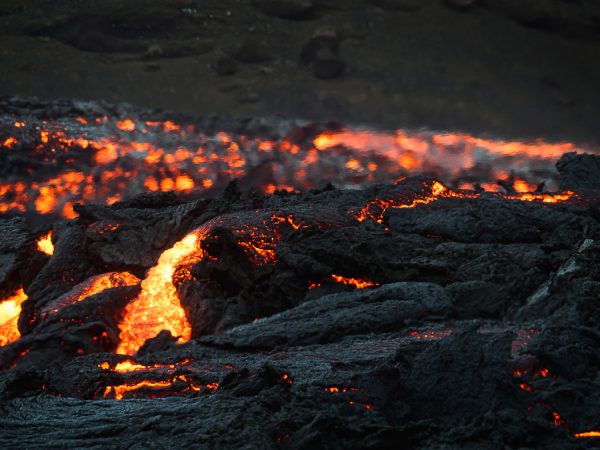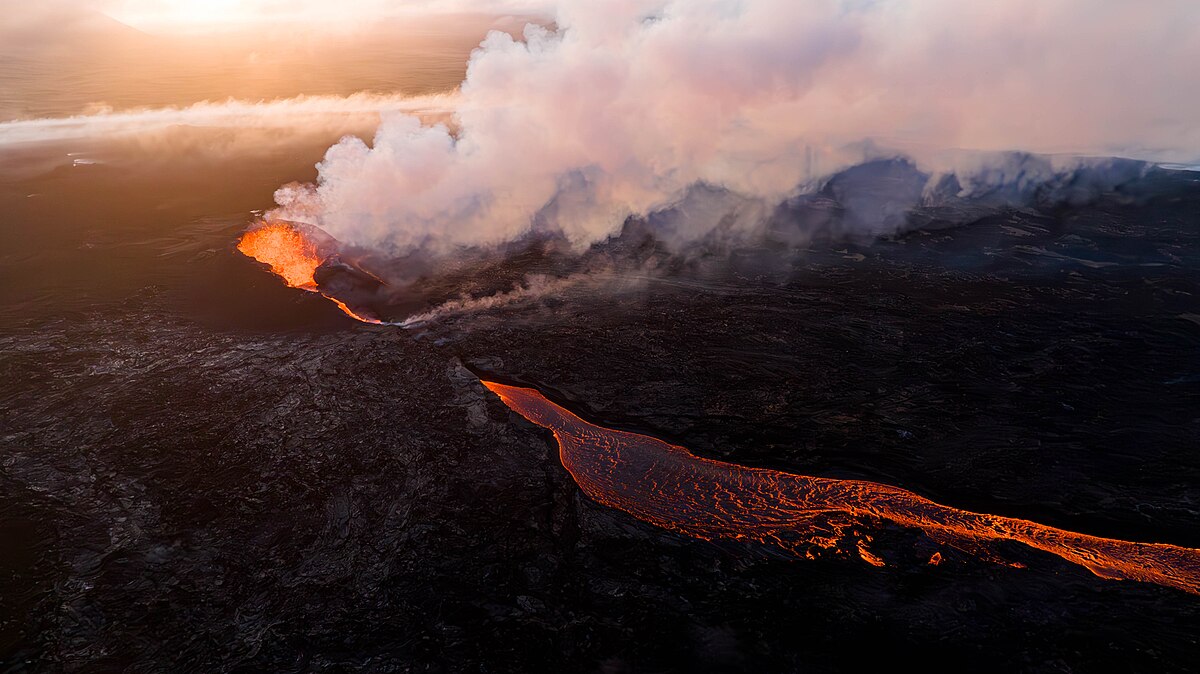On Saturday, March 16, a volcano on the Reykjanes Peninsula in Iceland erupted, destroying and setting fire to parts of the town of Grindavik. This caused nearby towns and famous spa resorts to be evacuated and closed down temporarily. Surrounding tourists recall seeing terrifying fountains of lava and having to leave their vacation early.
Iceland sits right on top of two tectonic plates, exposing itself to a high risk of severe natural disasters such as earthquakes and volcanic eruptions. As the plates tend to separate, magma or lava from the earth’s mantle rises to the surface due to pressure caused by the moving plates, causing a powerful eruption like the one that just occurred.
This incident is the fourth time The Svartsengi volcanic system has erupted in the last four months. However, according to The Wall Street Journal, this incident is different from most volcanic eruptions. Typically, lava oozes up the throat of the mountain and erupts violently out the main vent, causing ash and rocks to spread everywhere, while the lava slides down the mountain. In this eruption, which is called a fissure eruption, lava slowly comes out of cracks in the ground, as it didn’t originate from just one tall, cone-shaped mountain. In the first eruption, lava doesn’t flow very smoothly and therefore doesn’t spread, whereas in this kind of eruption, the lava flows quickly across the landscape, causing catastrophic damage.

The eruption was unexpected as there wasn’t much seismic activity from the volcano The fissure or crack on the earth, through which the lava emerged, is 1.8 miles long, and fortunately, the lava gradually stopped coming out of it a day or two later. Before December of 2023, the volcano that caused the eruption hadn’t been active for 800 years. This is common in volcanoes as they typically have long periods of stability, with no seismic activity, that is interrupted by brief periods of eruption. This cycle occurs over the course of centuries, which means it’s safe to say that these eruptions will happen again.
The Blue Lagoon, one of the most prominent resorts in Iceland, known for its heated water, relaxing atmosphere, and healing properties, had to close down and evacuate all the guests due to the eruption, according to FOX29. “We will continue to closely follow the guidelines and recommendations of the authorities, working collaboratively with them to monitor the progression of events,” the Blue Lagoon reports on its website. The Resort luckily opened again on Sunday, march, 17.
Unfortunately, the surrounding area wasn’t the only area that this calamity affected. This eruption in Iceland and other eruptions have been causing “global anxiety that brought a drop in tourists,” as reported in The New York Times. The Icelandic Airlines also suffered from fewer bookings than usual in flights in the last few months.













































































































































